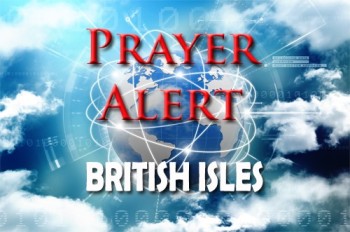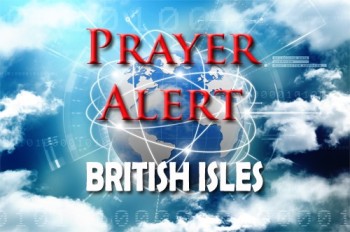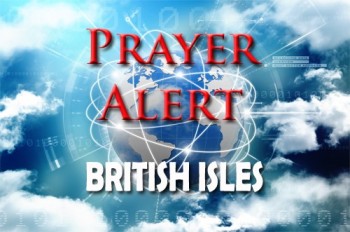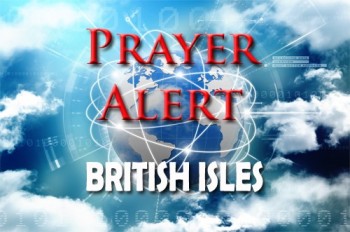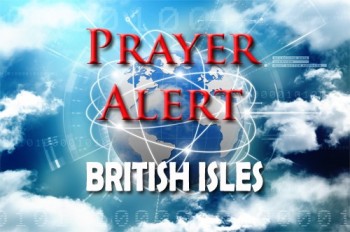Displaying items by tag: armed forces
UK must ‘actively prepare’ for a war on home soil
The UK’s newly released National Security Strategy warns that the nation must actively prepare for potential warfare on home soil. Citing escalating global instability, including threats from Iran and the ongoing war in Ukraine, it calls for 'national resilience exercises' involving the public, businesses, and academia, aiming to build preparedness against cyberattacks, sabotage, and hostile actions from states like Russia, Iran, and China. Cabinet minister Pat McFadden stressed the need for Britain to be 'clear-eyed and hard-edged' in facing these threats, while Keir Starmer pledged to increase defence spending to 5% of GDP by 2035. Critics, such as Priti Patel, argue that the government lacks a detailed roadmap for defence spending targets. Nonetheless, the strategy invokes the wartime spirit of national unity and determination, urging a whole-of-society response to future challenges and affirming optimism grounded in the resilience of the British people.
Government plans to invest £1 billion in advanced cyber warfare
The Government plans to invest over £1 billion in advanced cyber warfare capabilities, including a new ‘digital targeting web and a dedicated cyber command, as part of its strategic defence review. Defence secretary John Healey announced the initiative in response to escalating cyber threats, citing over 90,000 state-linked attacks on the UK’s defence systems in the past two years. The new command, led by General Sir Jim Hockenhull, will coordinate both defensive and offensive cyber operations with the National Cyber Force and manage tactics such as signal jamming and communications disruption. The digital targeting web, expected by 2027, will allow real-time coordination between sensors, drones, aircraft, and cyber tools to neutralise threats swiftly. Healey highlighted the rising global cyber conflict and warned that ‘the keyboard has become a weapon of war’. The move aims to defend against hostile states like Russia and China, while equipping the UK with cutting-edge technological warfare capabilities.
Germany: conscription to be reintroduced?
Germany’s conservative leaders have argued that the country should quickly reintroduce compulsory military service. Friedrich Merz, leader of the new CDU/CSU government, argues that Europe must take greater responsibility for its defence, especially given NATO’s uncertain future. Defence spokesman Florian Hahn says the suspension of conscription ‘no longer fits the current threat situation’, and wants to see new conscripts before the end of 2025. Merz also supports a mandatory year of military or community service to strengthen personnel numbers. While conscription remains controversial, cross-party support for it is increasing. A new system, put in place by the previous government, will require 18-year-old men to complete a questionnaire about their interest in the army and their physical condition; for women it will be optional. A contingent of men and women will then be invited to a selection process. Without immediate action, Germany’s armed forces risk severe shortages in the coming years.
Armed forces providing training for repressive regimes
Campaigners have called on the Government to review its military collaboration and training with regimes that abuse human rights. From 2018 to 2020, the UK provided military training for 17 countries identified as ‘human rights priority countries’ by the Foreign and Commonwealth Office (FCO). Much of the training for Saudi Arabian forces is linked to the use of UK-made fighter jets being used in the war in Yemen, where the Saudi-led bombardment has created the worst humanitarian crisis in the world. There has also been training for regimes with poor human rights records but not on the FCO list. Many of these armies have appalling human rights records and are linked to brutal oppression as well as international aggression. By training and collaborating with despots, dictatorships, and human rights abusers, the UK risks making itself complicit in the abuses that are being inflicted.
Problem gambling in the armed forces
For many former members of the armed forces, the transition from active service to civilian life can be challenging. It is well known that transitioning veterans are more likely to engage in high-risk behaviour like excessive gambling. Research from outside the UK has consistently demonstrated that problem gambling is a more prevalent issue in armed forces populations than among civilians. Recently the Bishop of St Albans was told by the MoD that it had not funded or conducted any research on problem gambling among service personnel or veterans, but knew of a study suggesting veterans are at an increased risk of developing gambling problems. Earl Howe said that gambling has serious implications, both as a potential security risk and in connection with issues of mental health.
Afghan interpreters need British visas
In June 2018 the defence secretary announced that 200 British visas would be made available to Afghan interpreters and their families. He praised their ‘unflinching courage’ in serving alongside British forces in situations ‘fraught with great difficulty and danger’. But fifty translators are yet to receive their visas; so far only one has been told they can come to the UK under the new rules. The MoD said it is working hard to identify who is eligible for relocation, while a select committee acknowledged, ‘There is a broad consensus that the UK owes them a great debt of gratitude’. Meanwhile the interpreters are being stalked and threatened by IS and Taliban terrorists. At least six of them, including one still working with UK forces in Kabul, have been directly targeted by name through social media sites. Branded 'spies' and 'infidels', they were told to save themselves and their families by joining IS, or face being hunted down. See
Friday Focus: Remembrance Day
11 November will be the 99th anniversary of the ending of WW1. We remember all those who gave their lives not only in two world wars but also in the many conflicts since. Should we not also pray for those who still serve our country today in the armed forces and for those veterans whose lives bear the scars of their service?
(Val Hall, Armed Forces Christian Union)
